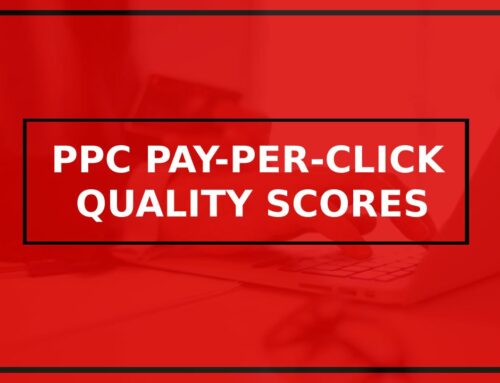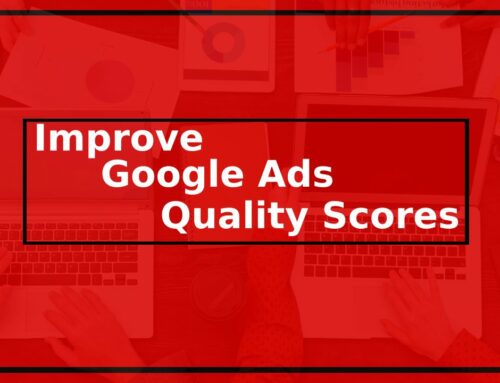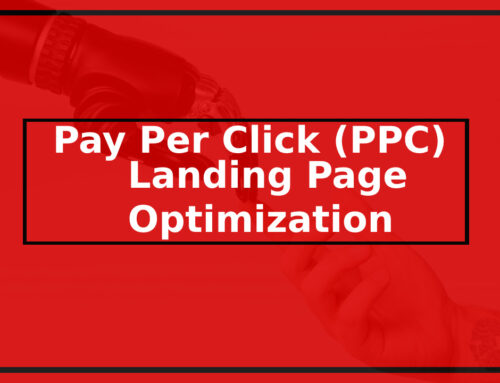The Ultimate Guide to Keyword Research for PPC Campaigns
Pay-per-click (PPC) advertising is a popular form of digital marketing that enables businesses to reach their target audience quickly and effectively. One of the keys to success with PPC campaigns is proper keyword research. In this ultimate guide, we will walk you through the steps in conducting keyword research for PPC campaigns and share some best practices to help you optimize your campaigns for maximum results.
Why Learn Good Pay Per Click Keyword Research?
Pay-per-click advertising is a powerful tool to help businesses reach their target audience and achieve their marketing objectives. However, to be successful with PPC campaigns, you need to start with proper keyword research. Keyword research is the process of identifying the most relevant and valuable keywords for your campaigns.
This guide will walk you through the steps in conducting keyword research for PPC campaigns. We will cover everything from defining your campaign objectives to identifying your target audience and using tools and techniques to conduct keyword research. We will also share some of the best practices to help you optimize your campaigns for maximum results.
Why Keyword Research is Important for PPC Campaigns
 Keyword research is the foundation of any successful PPC campaign. Proper keyword research enables you to identify your campaigns’ most relevant and valuable keywords. It also helps you better understand your target audience and the language they use when searching for products or services related to your business.
Keyword research is the foundation of any successful PPC campaign. Proper keyword research enables you to identify your campaigns’ most relevant and valuable keywords. It also helps you better understand your target audience and the language they use when searching for products or services related to your business.
Without proper keyword research, your campaigns may use keywords that are too broad or competitive, meaning your business will not be able to target the right audience. This can lead to lower click-through rates, costs, and ROI.
Defining Your Campaign Objectives
What do you want to achieve with your campaigns? Do you want to increase website traffic, generate leads, or drive sales? Defining your campaign objectives is the first step in conducting keyword research for PPC campaigns.
Once you have defined your campaign objectives, you can identify the most relevant keywords to your business and your target audience.
Identifying Your Target Audience
To conduct adequate keyword research, you must understand your target audience clearly. Who are they, what are they looking for, and what language do they use when searching for products or services related to your business?
You can use tools like Google Analytics, Google Trends, and social media analytics to gather data about your target audience. This data can help you to identify the most relevant and valuable keywords for your campaigns.
Conducting Keyword Research: Tools and Techniques
You can use several tools and techniques to conduct keyword research for your PPC campaigns. These include:
- Google Keyword Planner: This tool is designed to help advertisers identify keywords for their campaigns. It provides data on search volume, competition, and suggested bids for each keyword.
- Google Trends: This tool provides data on the popularity of search terms over time. It can help you identify trending keywords and seasonal trends.
- SEMrush: This tool provides data on competitor keywords, organic search rankings, and backlinks. It can help you identify gaps in your keyword strategy and optimize your campaigns for maximum ROI.
- Keyword.io: This tool provides data on long-tail keywords and related search terms. It can help you identify less competitive keywords that are more likely to convert.
- Manual Research
Analyzing Competitor Keywords
Analyzing competitor keywords is an important step in keyword research for PPC campaigns. By analyzing your competitor’s keywords, you can identify gaps in your keyword strategy and optimize your campaigns for maximum ROI.
You can use tools like SEMrush and Ahrefs to identify your competitor’s keywords. These tools provide data on organic search rankings, backlinks, and competitor keywords. You can also use Google to search for your competitor’s products or services and analyze the keywords used in their ad campaigns.
Organizing and Refining Your Keyword List
Once you have identified your campaign’s most relevant and valuable keywords, you must organize and refine your keyword list. This involves grouping keywords into themes or categories and removing irrelevant or low-value keywords.
You can use tools like Google Sheets or Microsoft Excel to organize and refine your keyword list. You can also use tools like Google Keyword Planner or SEMrush to filter and sort your keyword list based on search volume, competition, and suggested bids.
Building Effective Pay Per Click Campaigns with Your Keyword Research
Once you have organized and refined your keyword list, you can build effective PPC campaigns. This involves creating ad groups and writing ad copy targeted to specific keywords and themes.
You can use tools like Google Ads or Microsoft Advertising to create PPC campaigns. You can also use ad copy templates and ad preview tools to test and refine your ad copy before launching your campaigns.
Testing and Measuring Campaign Performance
Testing and measuring campaign performance is essential for optimizing your PPC campaigns. This involves monitoring metrics like click-through rate (CTR), conversion rate, cost-per-click (CPC), and return-on-ad-spend (ROAS).
You can also use A/B testing or multivariate testing to test different ad copy, landing pages, and keywords.

Google Ads PPC Management Services
Optimizing Your Campaigns for Better Results
Optimizing your PPC campaigns for better results involves continuously refining your keyword strategy and ad copy based on performance data. This involves identifying low-performing keywords and ad groups and optimizing them for maximum ROI.
You can also use bid optimization tools, ad scheduling, and targeting options to optimize your campaigns for maximum results.
Keyword research is a critical component of any successful PPC campaign. Following the steps outlined in this guide, you can conduct effective keyword research that helps you reach your target audience and achieve your campaign objectives. Always test and measure your campaign performance and optimize your campaigns for maximum ROI.
FAQ
What is keyword research for PPC campaigns?
Keyword research for PPC campaigns is identifying the most relevant and valuable keywords for your PPC campaigns. This involves researching your target audience, analyzing competitor keywords, and refining your keyword list for maximum ROI.
Why is keyword research important for PPC campaigns?
Keyword research is important for PPC campaigns because it helps you reach your target audience and achieve your campaign objectives. Proper keyword research enables you to identify the most relevant and valuable keywords for your campaigns, understand your target audience better, and optimize your campaigns for maximum ROI.
What tools can I use for keyword research for PPC campaigns?
You can use several tools for keyword research for PPC campaigns, including Google Keyword Planner, Google Trends, SEMrush, Ahrefs, and WordStream. You can also use manual research to gather data about your target audience and competitor keywords.
How do I analyze competitor keywords for PPC campaigns?
You can analyze competitor keywords for PPC campaigns using SEO tools like SEMrush and Ahrefs. These tools provide data on organic search rankings, backlinks, and competitor keywords. You can also use Google to search for your competitor’s products or services and analyze the keywords used in their ad campaigns.
What are some best practices for keyword research for PPC campaigns?
Some best practices for keyword research for PPC agency and small businesses alike is to include defining clear campaign objectives, conducting thorough keyword research, identifying your target audience, analyzing competitor keywords, organizing and refining your keyword list, building effective PPC campaigns, testing and measuring campaign performance, and optimizing your campaigns for better results.






Leave A Comment